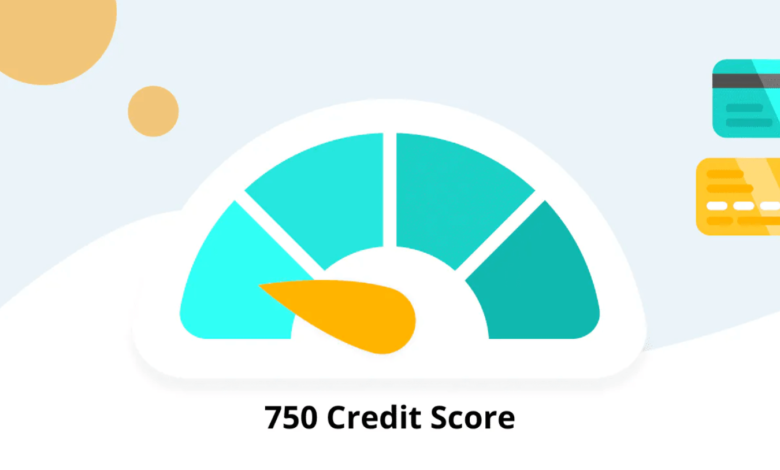Is 750 a Good Credit Score? Unraveling the Credit Score Mystery

In the labyrinth of personal finance, one number often takes center stage – the credit score. As you navigate the intricate world of financial decisions, you might wonder, “Is 750 a good credit score?”
Understanding Credit Scores
What is a Credit Score?
A credit score is a numerical representation of an individual’s creditworthiness, condensing their credit history into a three-digit number. It serves as a quick reference for lenders to assess the risk associated with lending money to a particular individual.
Components of a Credit Score
Your credit score comprises several factors, including payment history, credit utilization, length of credit history, types of credit in use, and new credit accounts.
Importance of Credit Scores
Credit scores play a pivotal role in financial transactions. They influence the interest rates you receive on loans, your ability to secure credit cards, and even impact non-financial aspects like renting an apartment or obtaining insurance.
The Significance of 750
Excellent vs. Good Credit
A credit score of 750 falls within the “good” credit range, positioning you favorably with lenders. While an excellent score is typically above 800, a score of 750 provides access to competitive interest rates and financial opportunities.
Access to Financial Opportunities
With a credit score of 750, you open doors to various financial opportunities. Lenders view you as a responsible borrower, making it easier to secure loans and credit cards with favorable terms.
Factors Influencing Credit Scores
Payment History
Timely payments are the cornerstone of a healthy credit score. Consistently paying bills by their due dates positively impacts your creditworthiness.
Credit Utilization
Credit utilization measures the ratio of your credit card balances to your credit limits.
Length of Credit History
The length of your credit history considers how long your accounts have been active.
Types of Credit in Use
A diverse mix of credit types, such as credit cards, mortgages, and installment loans, can positively influence your credit score.
New Credit Accounts
Opening multiple new credit accounts in a short period can negatively impact your score.
Maintaining a 750 Credit Score
Timely Payments
Consistency is key. Ensure that all your bills, from credit cards to loans, are paid on time to maintain a positive payment history.
Managing Credit Utilization
This responsible approach positively impacts your credit score.
Building a Diverse Credit Mix
Explore different types of credit, but do so responsibly. A mix of credit types can contribute positively to your creditworthiness.
Regularly Reviewing Credit Reports
Monitor your credit reports for inaccuracies or suspicious activities. Promptly address any issues to maintain the accuracy of your credit profile.
The Pros and Cons of a 750 Credit Score
Advantages
- Favorable Interest Rates: A score of 750 qualifies you for competitive interest rates on loans.
- Access to Credit: Lenders are more willing to extend credit with favorable terms.
- Financial Opportunities: Opens doors to various financial opportunities and favorable terms.
Potential Drawbacks
- Not the Highest: While good, it’s not the highest possible score, limiting some premium financial offerings.
Common Myths about Credit Scores
Closing Credit Accounts Improves Scores
Contrary to popular belief, closing credit accounts can sometimes harm your credit score.
Checking Your Credit Hurts Your Score
Regularly checking your credit report or score through authorized channels, like annual credit reports, won’t harm your credit score.
Credit Scores Never Change
Credit scores are dynamic and can change based on your financial behaviors. Positive actions can improve your score over time.
Improving a Lower Credit Score
Identifying Areas for Improvement
Review your credit report to identify areas for improvement, such as late payments or high credit card balances.
Creating a Credit Improvement Plan
This may include setting up automatic payments or paying down credit card balances.
Beyond the Numbers: Credit Score Impact
Employment Opportunities
Some employers may consider credit scores when making hiring decisions, especially for positions that involve financial responsibilities.
Renting a Home
Landlords often check credit scores as part of the tenant screening process. A higher score can increase your chances of securing a rental.
Insurance Premiums
Certain insurance providers use credit scores to determine premiums. A higher score may result in lower insurance costs.
Utility Deposits
A good credit score may exempt you from paying utility deposits when setting up new services. Read more…
Credit Score FAQs
How often should I check my credit score?
Regularly monitor your credit score, at least once a year, and more frequently if you’re actively working on improving it.
Can I improve my credit score quickly?
Improving your credit score takes time and consistent positive financial behavior. There’s no quick fix.
Does income affect my credit score?
Income itself doesn’t directly impact your credit score. However, it can influence your ability to manage credit responsibly.
What’s the minimum credit score for a mortgage?
While requirements vary, a credit score of 620 or higher is generally considered the minimum for a conventional mortgage.
How long does negative information stay on my credit report?
Most negative information, such as late payments or bankruptcies, remains on your credit report for seven years.
Conclusion
In the intricate tapestry of personal finance, a credit score of 750 weaves a story of financial responsibility and opportunity. By understanding the factors that influence your score and adopting healthy financial habits, you can not only maintain a good credit score but also leverage it for a brighter financial future.




